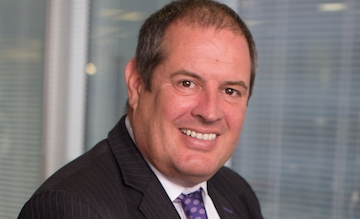Financial Planning firm Bellpenny’s new chief executive has outlined his key priorities after taking over earlier this month.
Nigel Stockton, who has taken over the helm from Kevin Ronaldson, has spoken about his aims and ambitions in an exclusive interview with Financial Planner Today.
The Financial Planning firm, which employs 77 Financial Planners and 41 Paraplanners, took its total number of acquisitions to 30 in July.
Read on for the first part of the interview below:
Financial Planner Today: What are your main thoughts and feelings about the job ahead of you as you start your new role?
Nigel Stockton: I actually see it as quite straightforward: everything in our business needs to revolve around giving clients great financial advice. The rest flows from that. In order to succeed, first and foremost I need happy clients recommending Bellpenny’s services to their friends, family and colleagues.
What do you think have been the key reasons for the success the firm has had up until now?
Setting up the business from scratch gave us the opportunity to think through what makes a good financial advice business, right from first principles. The company has bought well and is growing as fast as we wanted it too. My job is to continue that story.
What are your top 3 priorities for the first year in your new role as CEO and why?
1) Base everything around the clients. Simply put that means our adviser, Paraplanner and admin support roles are the most important in the company. Ultimately, everyone else exists to support them. It is easy to forget this sometimes!
2) In similar vein, we need to make sure doing business is as simple as possible for clients and for staff. It is easy when you grow by acquisition to make allowances each time you buy something – however this can quickly lead to complicated internal processes. It’s essential to make sure everything is as simple as it possibly can be and that the structure of the business underpins this.
3) I intend to listen very carefully to staff. Running a financial advice firm is not rocket science...just so as long as you are prepared to listen, learn and be prepared to amend the customer propositions accordingly.
{desktop}{/desktop}{mobile}{/mobile}
Bellpenny’s latest acquisition in July took the total number of acquisitions since it launched in 2012 to 30. Are there more in the pipeline? Is there a target for how many the firm would like to acquire in total over the next year? Is the company looking to acquire similar sized firms to those already taken over or will it pursue larger ones?
Since our last announcement we have acquired two more business that we will be announcing shortly. Going forward will always look for opportunities where we believe we can add value.
Does this mean more acquisitions? Almost certainly. I do, however, intend to take stock of our current position and I would expect fewer - but larger - acquisitions going forward in 2016 and beyond.
Do you have any plans for flotation?
None at all. The Countrywide IPO taught me that if you build a profitable, strong client-based business, with happy customers and simple internal operations then the future will look after itself.
Do you have your own personal long term vision and strategy for the company and if so could you tell us about it please? Where do you see Bellpenny in five years time?
My vision is the company’s vision – to be the best financial advice firm in the country. Best doesn’t necessarily mean biggest. It means we have happy clients prepared to recommend us and that we give timely, great financial advice for all customers wealth, pension and investment needs.
In five years time I hope Bellpenny will still be living and breathing these core ideals.
What is the biggest challenge facing the company in the next year?
I expect the current review of advice by Treasury and FCA to be more far-reaching than perhaps people think. We need to think through how we provide everyone with access to advice. I expect that to be the outcome for us as advice providers and for product providers as well. How we serve everyone - not just those who can justify face-to-face advice - will define our industry in the coming years.

